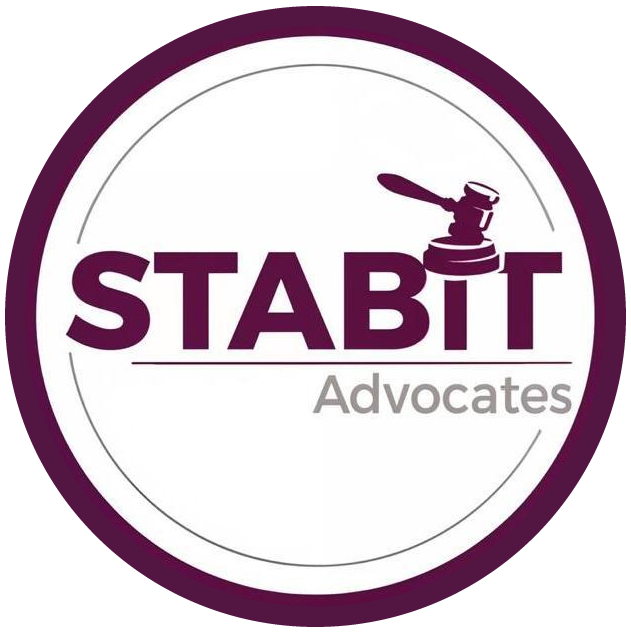The Remote Work Revolution: Navigating the Legal Landscape of the New Corporate Reality. A stabit…

Our Legal Guide on Corporate Governance in Rwanda: Driving Sustainability and Prosperity Through Improved Regulations and Practices – Vol 2. 2024.
Rwanda, a Rich East African nation with a rich history and vibrant culture, has made tremendous strides in recent years to create a more conducive environment for business and investment. In line with this, the country has placed increased emphasis on corporate governance, with the aim of promoting transparency, accountability, and investor protection.
Corporate governance is the system by which companies are directed and controlled and is critical to the success and sustainability of businesses in Rwanda. In recent years, the country has made significant strides in improving its regulatory framework for corporate governance, with the aim of promoting transparency, accountability, and investor protection. This article shall provide an overview of the key regulations and trends shaping corporate governance in the Republic of Rwanda today.
- WHAT IS THE CORPORATE STRUCTURE.
A corporate structure refers to the legal and organizational framework of a company, including its ownership, management, and governance. There are several common types of corporate structures, including:
Sole Proprietorship: A business owned and operated by a single individual, with no legal distinction between the owner and the business.
Partnership: A business owned and operated by two or more individuals who share ownership and profits.
Corporation: A legal entity that is separate and distinct from its owners and has limited liability.
Limited Liability Company (LLC): A hybrid business structure that combines the limited liability of a corporation with the tax advantages and management flexibility of a partnership.
Limited Partnership (LP): A partnership structure in which one or more general partners manage the business and assume unlimited liability for the company’s debts and obligations, while one or more limited partners provide capital but have limited liability.
Limited Liability Partnership (LLP): A partnership structure in which the partners have limited liability for the debts and obligations of the business.
In addition to these basic structures, companies may also choose to adopt specific organizational models to align with their strategic objectives and business needs, including:
Divisional Structure: The company is organized into divisions, each with its own management team and set of resources, to support different product lines or geographic markets.
Functional Structure: The company is organized around functional areas, such as marketing, finance, and human resources, to support specific business functions.
Matrix Structure: The company uses a matrix structure, with employees reporting to both functional managers and project managers, to support cross-functional projects and initiatives.
Virtual Organization: The company operates using virtual teams and technologies, rather than traditional brick-and-mortar facilities, to support flexible work arrangements and global collaboration.
Flat Structure: The company adopts a flat structure, with few layers of management and more horizontal decision-making, to support agile and innovative approaches to business.
Holacracy: A self-management system that distributes authority across self-organizing teams, replacing the traditional corporate hierarchy with a dynamic network of roles and responsibilities.
In addition to these structures, companies may also adopt specific governance models to support their strategic objectives and stakeholder needs, including:
Corporate Social Responsibility (CSR): The company commits to ethical and sustainable business practices, including environmental protection, diversity and inclusion, and community engagement.
Employee-Ownership: The company provides employees with ownership stakes in the business, through stock ownership plans or other arrangements, to align employee interests with those of the company.
Cooperative Ownership: The company is owned and controlled by its members, with profits shared among members based on their contributions to the cooperative’s success.
There are also several emerging trends in corporate structures, including the following:
Social Enterprise: Companies that prioritize social or environmental impact alongside profit maximization, using innovative business models and governance structures to support sustainable and responsible growth.
Impact Investing: The use of capital to generate positive social and environmental impact alongside financial returns, through investments in socially responsible companies and impact funds.
Blockchain-based Organization: Companies that use blockchain technology to create decentralized, transparent, and self-governing organizational structures, such as decentralized autonomous organizations (DAOs).
As these trends continue to evolve, companies will need to adapt their structures and strategies to remain competitive and aligned with the changing needs of their stakeholders. This may involve adopting new technologies, adopting alternative business models, or pursuing new forms of collaboration and partnership.
Ultimately, the most effective corporate structure for any given company will depend on its specific context and strategic objectives, as well as its ability to balance the needs and interests of its stakeholders.
- CORPORATE GOVERNANCE REGULATIONS IN RWANDA.
Corporate governance is an essential aspect of business regulation in Rwanda. Here are some of the key regulations that are shaping the corporate governance landscape in the country:
The law governing Companies in Rwanda (2021): This legislation sets out the legal framework for the formation, management, and dissolution of companies in Rwanda. It includes provisions for corporate governance, including rules for director elections/appointments, shareholder rights, and annual reporting.
The law regulating capital markets business: This act establishes the Rwanda Capital Markets Authority, which is responsible for regulating and promoting the development of capital markets in Rwanda. The authority sets standards for corporate governance and disclosure for publicly listed companies.
The law governing the holding and circulation of Securities (Rwanda): This law, sets out the requirements for listing and trading on the Rwanda Securities Exchange. This includes provisions on corporate governance, including disclosure requirements and the composition of boards of directors.
The Guiding Code of Corporate Governance in Rwanda: This code provides guidance on best practices for corporate governance in Rwanda, including principles for board leadership, risk management, and shareholder communication.
The Rwanda Anti-Corruption Policy: This policy seeks to combat corruption and fraud in Rwanda by imposing strict penalties for bribery and other corrupt practices.
- CORPORATE GOVERNANCE PRACTICES IN RWANDA.
In the contemporary business environment, corporate governance is more important than ever. With increased scrutiny from shareholders, regulators, and the public, companies must strive to maintain the highest standards of transparency, accountability, and ethical behavior. From the boardroom to the shop floor, good governance is essential to creating a culture of trust and fairness, and to ensuring long-term sustainability.
As Rwanda continues to develop its economy and attracting foreign investment, the need for strong corporate governance has become increasingly apparent. The government policy, regulators, and industry leaders have all recognized the importance of fostering a culture of good governance, and have taken several steps to strengthen the regulatory framework and to improve the transparency and accountability of businesses operating in the country.
Some of the key regulations that have shaped the corporate governance landscape in Rwanda include the Rwanda Companies law, the law regulating capital markets business, and the Rwanda Code of Corporate Governance.
In addition to these regulations, there are several trends that are shaping the corporate governance landscape in Rwanda, including;
A growing focus on independent directors, to promote greater accountability and objectivity in decision-making processes.
Increased emphasis on transparency and disclosure, with companies required to provide more information about their operations and governance structures through periodical filing of annual returns.
Adoption of international standards, such as the OECD Principles of Corporate Governance, as part of Rwanda’s broader effort to align with global best practices.
- BENEFITS OF GOOD CORPORATE GOVERNANCE;
The importance of good corporate governance is not limited to regulatory compliance, however. Companies that embrace strong governance principles are better positioned to foster trust and accountability among stakeholders, build a more resilient and sustainable business model, and attract investment and talent. The benefits of good corporate governance include the following;
Improved Reputation: Good governance practices can enhance a company’s reputation and credibility, both among investors and the general public. This can lead to increased investor confidence and enhanced brand value.
Increased Efficiency: By creating clear structures and processes, good governance can help companies operate more efficiently and effectively, reducing the risk of inefficiency and waste.
Better Risk Management: Strong governance structures can help companies identify and mitigate risks more effectively, protecting against losses and ensuring long-term sustainability.
Enhanced Stakeholder Relations: Effective governance practices can foster better relations with key stakeholders, such as shareholders, customers, employees, and suppliers. This can lead to greater loyalty and collaboration, resulting in improved business performance.
Improved Corporate Culture: By promoting transparency, accountability, and ethical behavior, good governance can help to create a strong corporate culture that is aligned with the company’s values and objectives.
Increased Innovation: By providing a stable and supportive environment, good governance can encourage innovation and creativity, leading to the development of new products, services, and business models.
Better Decision-Making: Effective governance structures can help ensure that decisions are made based on sound information and with input from key stakeholders, leading to more informed and effective decision-making.
Improved Financial Performance: Research shows that companies with strong governance practices often experience better financial performance, including higher returns on equity and lower levels of financial risk.
Greater Agility: By enabling quicker decision-making and flexible resource allocation, good governance can help companies adapt to changing market conditions and seize opportunities as they arise.
Enhanced Leadership Development: Strong governance practices can support the development of effective leaders, promoting succession planning and talent management within the organization.
Increased Corporate Responsibility: By embracing ESG factors and sustainability initiatives, companies with good governance can demonstrate their commitment to corporate responsibility and social impact.
In Rwanda, this commitment to good governance is seen in the increasing number of companies that are adopting corporate social responsibility initiatives and incorporating environmental, social, and governance (ESG) factors into their strategic planning.
- COMPARISON OF CORPORATE GOVERNANCE PRACTICES IN RWANDA AND OTHER COUNTRIES;
The key points of comparison between corporate governance in Rwanda and the broader landscape of corporate governance today:
Globalization and technology: The modern world of corporate governance is increasingly shaped by globalization and technological advances, which have transformed the way companies operate and the expectations of stakeholders. Rwanda is also affected by these trends, as businesses in the country must adapt to a more globalized and digital landscape.
Regulatory environment: Rwanda has made significant strides in recent years to strengthen its regulatory framework for corporate governance, in line with global best practices.
ESG considerations: Environmental, social, and governance (ESG) factors are becoming increasingly important in corporate governance across the world, as companies recognize the value of incorporating sustainability and social responsibility into their business models. Rwanda is also experiencing this trend, with more companies adopting to ESG initiatives and incorporating these considerations into their strategies. This model is;
Corporate culture: The importance of fostering a strong corporate culture, characterized by accountability, transparency, and ethical behavior, is a common theme across the global corporate governance landscape. Rwanda is also focusing on building a culture of good governance in its businesses.
Shareholder activism: Shareholders are playing an increasingly active role in corporate governance, using their voices and votes to influence company policies and practices. Rwanda is also experiencing this trend, with shareholders becoming more engaged in governance issues and demanding greater transparency and accountability from companies.
Diversity and inclusion: There is a growing emphasis on diversity and inclusion in corporate governance around the world, as companies recognize the importance of diverse perspectives and experiences in decision-making. Rwanda is also placing greater emphasis on promoting diversity and inclusion in its business landscape.
Board oversight: The role and responsibilities of boards of directors are also evolving in the modern world of corporate governance, with a greater emphasis on oversight and strategic guidance. Rwanda is also experiencing this trend, with companies emphasizing the need for strong and independent board leadership to ensure effective oversight and decision-making.
While Rwanda’s journey towards better corporate governance is taking place within the broader landscape of modern corporate governance, it is also influenced by the country’s unique history, culture, and economic context.
In summary, corporate governance in Rwanda has come a long way in recent years, with the country embracing a range of regulations and initiatives to promote transparency, accountability, and investor protection. While the country still faces some challenges in building a strong corporate governance culture, the future is promising as Rwanda continues to adapt to global trends and align with international standards.
As companies in Rwanda and around the world navigate these changes, they must remain committed to fostering good governance practices, including transparency, accountability, stakeholder engagement, and ethical leadership.
If you love our article on “Our Legal Guide on Corporate Governance in Rwanda: Driving Sustainability and Prosperity Through Improved Regulations and Practices – Vol 2. 2024.,” check back here for more legal news
Contact Information
Stabit Advocates
Website: www.stabitadvocates.com
Email: info@stabitadvocates.com
Phone: +250 789 366 274
For more information or to discuss your case, please contact us at www.stabitadvocates.com.
This guide is intended to provide general information and does not constitute legal advice. For specific legal advice tailored to your situation, please consult with a qualified attorney at Stabit Advocates.




This Post Has 0 Comments